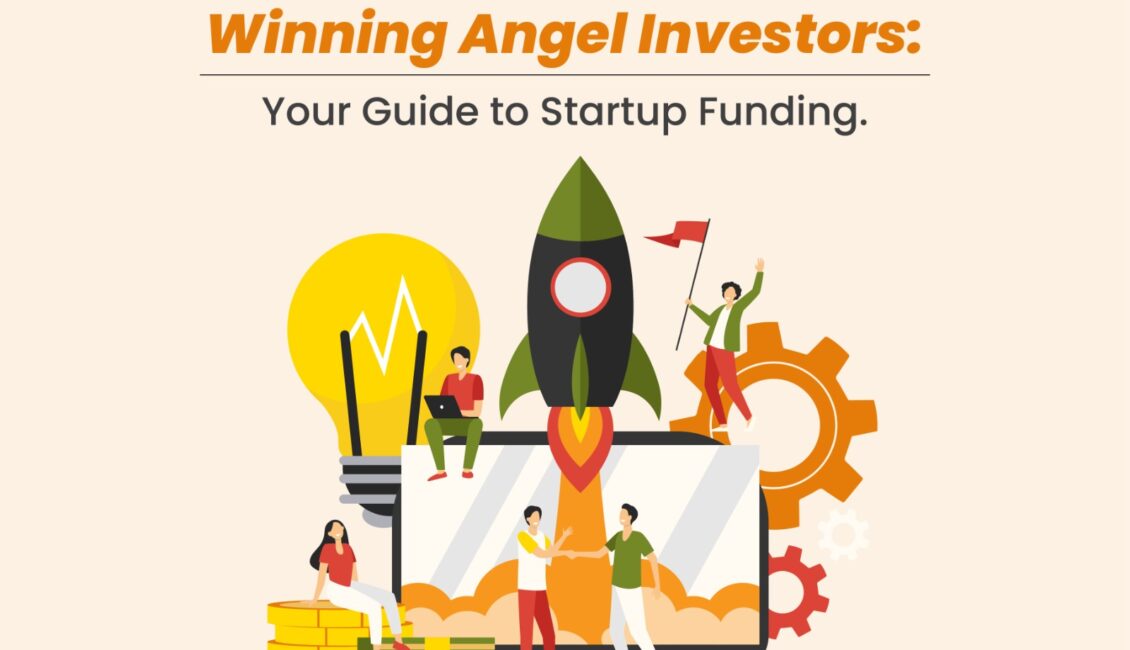
Angel investment, what is it exactly and why should startups focus on it if they want to turn their innovative idea into a thriving business?
In the sphere of startups, as an entrepreneur you can find multiple ways to secure investment to kickstart your entrepreneurial journey. But angel investment holds a special place but it doesn’t come around easily, considering the high risk associated with it.
This blog is your playbook on angel investment, helping you about angel investors and how you can approach and pitch your startup to secure angel funding. This list has been created based on our insightful conversations with global investors and from the exhibition and pitching event held at the International Investor Summit (IIS) in Abu Dhabi, UAE, in 2024.
What are Angel Investors?
There is a reason why investors like them are called ‘angels’. When investing in early-stage startups, they take significant risks as their future is uncertain. And their role also goes beyond just investing:
- Funding: Angel funding is critical for startups for market validation and traction.
- Guidance & Support: Angel investors provide guidance, assistance, and validation for the startup to grow and navigate the challenges they might face.
- Networking: The angel investors help you connect with fellow entrepreneurs and other investors to secure additional funding and validation.
What do Angel Investors Look For in a Startup?
There are innumerable HNIs that call the UAE their home and are on the hunt to invest in up and coming startups. So, how do startups catch the attention of these HNIs? The following are a few factors that investors investigate before investing.
The problem the startup solves
Angel investors are often driven by the change that startups bring to society and the industry. Therefore, you should study investors’ history to analyze their industrial experience and investment patterns. Angel investors invest in innovative ideas from the industry in which they are experienced. So, be clear about the problem you identified and the solution you created through your
startup.
Market size and TAM
While the problem and passion of entrepreneurs contribute greatly to investors’ decisions, the market size you cater to is equally important. Investors often ask for your startup’s Total Addressable Market (TAM), meaning the total market size you can cater to after diversifying and improving your product in the domestic and global markets. You should provide your startup’s market demand and scalability to show how fast your startup can grow.
Reliable business model
Most new entrepreneurs don’t realize their business model is what will either sink or sail their ship. A clear and realistic model will highlight your operations management, financial projections, revenue management plans, and your team members. Having a scalable business model gets you brownie points from the investors because easy expansion results in more revenue and profits.
The skills of the management team
Investors look beyond numbers. They assess how your team performs and what their skills are. They want confidence, whether your team can execute your plan and attain your sales and revenue projection. Therefore, highlight the skills of your core team and yourself and how you work together to achieve your goals.
An exit strategy
Every investor, especially angel investors, focuses on maximizing their returns. There are many exit strategies for angel investors, such as mergers, acquisitions, and IPO. On average, it takes around 4-10 years for the angel investors to get results and have an exit (source). Therefore, you need to highlight the possible exit plan for the investors within a reasonable timeframe based on the financial and market projections.
How do you win Angel Funding like a pro?
So, we understood what the investors look for in a startup before investing. Let’s discuss finding angel investors and securing their funding like a pro!
Attend pitching events:
Pitching events, like the one at our International Investor Summit in the UAE, help you pitch your startup to a pool of investors. These pitching events allow you to find interested investors, validate, and identify improvement areas.
Join incubator programs:
Angel investors often connect with incubators to find promising startups that already know how to operate in the business world. Therefore, you can enroll in a trusted incubator program to learn how to make your startup work, connect with other entrepreneurs, and find angel investors to secure angel funding.
Connect with an angel investor network:
An angel investor network helps you find angel investors looking for promising startups to invest in. Such a network allows you to find relevant investors who can provide you with guidance and validation. These angel networks also organize networking events, such as IIS, to help you establish a brand presence in the market and find investors and fellow founders.
Create an engaging pitch:
Your pitch should highlight your problem & solution statement, business model, team expertise, and traction. Create an engaging story to walk the investors through your startup journey, operations, and the other details of the pitch deck. Avoid complicated and fake information.
Highlight your traction:
Early-stage startups often lack significant traction. The investors know this as well. So, even the little wins count. You can highlight your successful research, the first 100 or 1K customers, revenue milestones you have achieved, customer reviews, and pitching event wins. Anything that proves your startup’s success can be counted as traction.
Ask for a precise funding amount:
Your valuation and a funding ask are critical factors in the success of your pitch. So, research and consult an expert to get the correct valuation. The early-stage startup valuation depends on the market demand, team expertise, financial projections, and traction. Choose an amount and the equity you will offer based on the valuation and the capital needed in your startup. You should plan the negotiable amount and equity shares to get the best offers.
Startup events such as the International Investors Summit (IIS) offer a stage for investors and startups (of all stages) to connect. The early-stage startup can present its startup on a global stage and secure global angel funding through pitching events, exhibitions, and networking. Stay tuned for future updates on our summit.
Conclusion
Securing angel investment is essential for startup growth. However, considering the risk involved in early-stage startup funding, angel investors consider many things before making the final decision. We have created this angel investor playbook to help you understand the factors influencing the investor’s decision. A few of these factors are the startup’s problem-solution statement, business model, team skills, market size, and the exit strategy for the investors. Attending startup events can help you find pitching opportunities and connect with the angel investor network to find investors and build your network.
FAQs
1. What are the benefits of angel investment?
Angel investment becomes critical for startups for R&D, product development, and getting the first traction from the target audience. The angel investors also extend their network to help the startups grow, access resources, and find business opportunities. For investors, angel investing allows them to diversify their portfolio with high-risk, high-return types of investments.
2. What’s the best time to raise angel funding?
The best time to raise angel funding is right after you have moved from the ideation to the R&D stage. Startups in the pre-seed or seed stage ideally raise it. The angel investment helps you create a better prototype and conduct market research to gain traction and an initial brand image.
3. What’s angel investment vs venture capital investing?
Angel investment is offered by high-net-worth individuals and experts who want to support innovative startups in the early stage. Venture capital firms offer venture capital investment to startups with good traction and a record. Angel investors are often known for their flexibility and the support they offer with the investment.
4. How to find angel investors in the UAE?
You can find an angel investor in the UAE through the angel investor network, incubators, startup events, and social media platforms. Attending startup events can help you network with investors, angel networks, and incubators to build strategic relationships and grow your startup.







